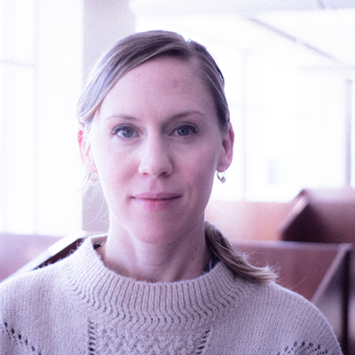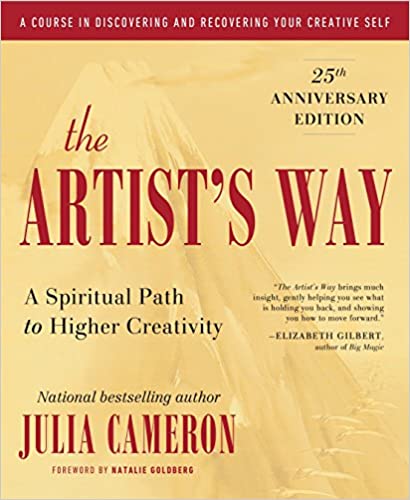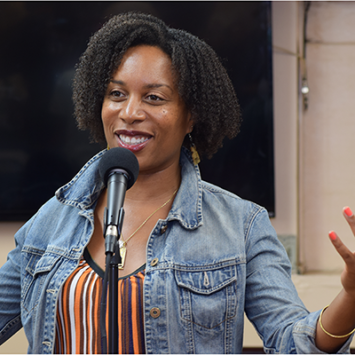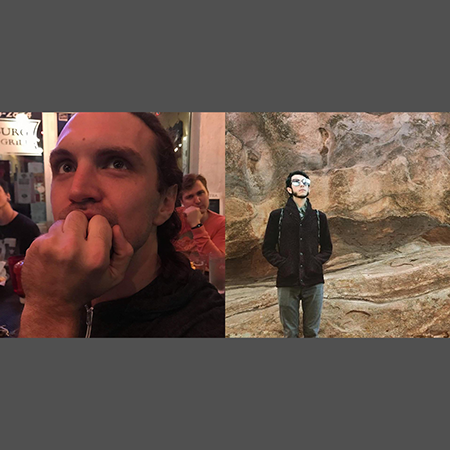How to Talk about Your Mental Health
- My Niche Is Human
- Episode 6
- 43 minutes
- Interview
- Anxiety, Depression, Feelings, Mental Health, Relationships
Show Notes
- Why Mallory started AssessUrHealth, a company that aims to develop AI to proactively identify individuals with Mental Health needs before they turn into emergency status
- We review how to understand Mental illness better so you can be less afraid of it
- Learning what to say, and what Not to say to someone who is suffering, avoiding common language that can cause a trigger or the feeling of being judged
- It’s okay not to be happy all the time; it’s actually healthy
- How to reach out to those around you, and how to respond to someone who is reaching out to you..
- Why we believe you don’t need a Medical Degree to be open and willing to share your opinion on Mental Health
- How do different cultures around the world view and talk about Mental Health
- How to share the lessons you learn as you overcome your “bad days”
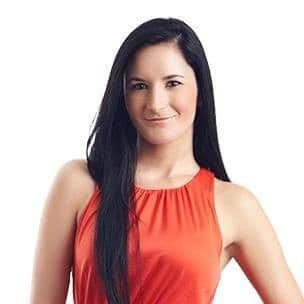
A conversation with Mallory Taylor
Mallory has done a lot of work to help lift the stigma on Mental Health. She is the founder of AssessUrHealth, a Tampa-based company focused on developing AI to help health care clinicians proactively identify Mental Health concerns.
You can learn more about and get in contact with Mallory on LinkedIn
This episode is a part of a 2 part series leading up to the scariest of all topics, Suicide. If this topic is close to you I would encourage you to consider listening to the next episode where I have a conversation with my Sister Maggie about her story of Surviving an Attempt at Suicide.
Resources Mentioned
Mallory and her team have done a great job bringing together a list of mental health and mental wellness resources for anyone looking for help… https://assessurhealth.com/resources/
Talking About Mental Health – Mallory Tai Taylor
Steven: [00:00:00] This is episode number six of the my niche is human podcast.
Today, we talk to the founder of a Tampa based company that is aiming to develop AI, to proactively assess mental health concerns before they turn into emergency states. So trying to utilize technology to help address mental illness cases before they go bad. We’re going to get to know the CEO of this company, Mallory and just shoot the shit and have a really in-depth conversation about a couple things. And I’m going to run those through real quick, just to see if you’re interested before you commit to this episode, it’s about 40 minutes long.
So a couple of things we talk about how to be less afraid of your mental health when trying to self-assess. Now that’s not self-diagnosing, that’s self-assessing; are you having a bad day or is it going too long and maybe you should go seek help. We also talk about learning how to respond to friends that may be reaching out to you or giving you a call for help. So not so much first responding, but you know how to use your language, how to, manage your own emotions when someone’s reaching out and it may be serious.
We also talk about why we believe that no medical degree is necessarily required for you to share your story about your mental health or cases of your mental illness, maybe family members or otherwise. And then we also talk about how different cultures view mental illness, which this was very interesting to me; talking about stigmas and different cultures, really opens your eyes to what’s more or less acceptable, outside of your bubble.
And in the end, everything comes down to how do we share the lessons we learned from overcoming our individual bad days? How can you share those with friends and family members with courage and without being afraid of saying the wrong thing?
So I hope that interests you. If you’re interested, stick around, this is a really great conversation with my friend Mallory.
We’re sitting here in your office for AssessURHealth and anyone who’s interested, they can go online. I want to jump over all that. I want to know why you’re here and, what’s your mission with all this?
Mallory Tai Taylor: [00:02:21] So I started AssessURHealth in 2015, after one of my childhood friends completed suicide. She was in the Air Force and had come back and had been given about 18 months for a mental health appointment, which is just something we need to work on with the VA in general, nothing they don’t know. And she started doing a lot of people do; self-medicating with alcohol and opioids.
And as friends and family, we didn’t see that there was an issue. She worked out all the time. She was beautiful. She had everything going for her. And unfortunately she was living a very lonely life and one day was just enough. So, that happened then with my co-founder, his daughter had been dealing with debilitating anxiety for years, and then she attempted. And at that point we looked at each other and we’re like, all right, enough is enough.
How are we going to help fix this? Which kind of is naive too in the grand scheme of things in mental health, but we thought we could do something. And so we created AssesURHealth and our whole mission is to help save lives by enabling providers and clinicians and giving them the tools that delivery of mission critical data instantly.
And at the same point in time, while we’re hoping that we can help save lives, we also are generating revenue for them too. And then additionally, we’re trying to really work on additional artificial intelligence so that we can help with healthcare outcomes and really trying to drive that GDP down when it comes to, to the cost of what people spend on healthcare.
Steven: [00:03:48] And when you say AI, that makes me think proactive rather than reactive?
Mallory Tai Taylor: [00:03:53] Correct. So we’re trying to get them that data instantly so that they can intervene hopefully before either an opioid addiction occurs or before a suicide attempt happens. All of that is where the AI comes into play.
Steven: [00:04:08] Okay. So you mentioned it took 18 months. So does that mean she was waiting 18 months to get an appointment?
Mallory Tai Taylor: [00:04:16] Correct.
She never saw a therapist, but part of what we talk about is she had seen a primary care doctor. And the primary care doctor missed it. And it’s very common because primary care has a lot of things that they’re screening for a lot of things they’re looking for.
And she didn’t come and say, I have a mental health issue. She had a somatic symptom, which is where it’s manifesting into a physical ailment. She couldn’t sleep. She was having backaches. It was really coming from her PTSD, her anxiety, her depression, but she didn’t report things like that and they didn’t ask questions like that.
They didn’t know that there was an issue and they didn’t see that she was self-medicating either. Cause I don’t know about you, but when I go to the doctor and my doctor physically asks me how many glasses of wine I have. I probably say like one a week instead of maybe one a night. So that’s part of what’s built into the technology is that an iPad doesn’t raise an eyebrow at you when you’re going through this in the office, but that’s how they actually see it.
So when I go into my primary care doctor, I have an application it’s on an iPad. I’m able to have a very honest, private conversation with it, as silly as that may sound and we’re screening for things like the somatic symptom, the depression, the anxiety, and then seeing if they’re self-medicating so we can give that comprehensive report to the clinician and they see all of that. So they are able to intervene and, and come up with a better care plan.
Steven: [00:05:37] That’s really interesting. So I’ve had some experience myself across the board. But the, what this is making me think of is when I’ve been that person sitting, you know, either in that waiting room or in that, on that bed, filling out any kind, maybe it’s a paper form
Mallory Tai Taylor: [00:05:52] Correct
Steven: [00:05:52] ..Or just answering their questions. So whether it’s judgment or not, whether it’s an individual or an iPad, I’ll speak for myself. I would still be very careful in how I answered those questions.
Cause especially when I was in high school, I was afraid to say anything that would, not get me in trouble, but put me in the “loony bin”. I was afraid of being “found out” all those things. So is there a consideration for that when developing this AI, can we almost, we don’t want to trick people, but can we take maybe a hundred data points and bring that to an assessment versus, do you have suicidal thoughts answer yes or no?
Most people are going to say no because, or in my case I would have, but can you create maybe 10 or 20 questions that will get you to the same understanding of an individual?
Mallory Tai Taylor: [00:06:38] So there’s skip logic built in, and some of the AI that is built in there that is going to give a self harm alert to clinicians.
So for instance, when it’s screened for depression, you may have answered never to a lot of the questions on there. However, based on certain answers and the likelihood and how often you’re feeling certain things, it’s still going to alert the clinician that they need to have a conversation with you and review the individual answers that you answered to the questions.
So it does have that built into it. The same point, it’s also going to skip over things that are not relevant to you based off of the answers that you’ve done. So very typical skip logic that’s built in, and as time goes on we will add additional things in there, again, not to trick people, but to get a better baseline of what’s happening.
And that’s really what it’s meant for. It’s not meant to diagnose anybody with anything. It’s a severity risk. So it’s telling the clinician how severe the classification is and how much they need to intervene and how quickly, et cetera. So not a judgment because a big part of us is ending the stigma, specifically.
So we spent a lot of time designing the front end experience for that patient so that they felt like it was a comforting experience. If you look at our application online or see it in person, which I’m sure you will today. You’ll see that again, it’s a very friendly experience down to the colors that we selected for the report.
So for red, it’s not a red stop sign, right? Like, you’ve done something wrong. It’s a fruit punch red and it’s meant to be able to engage the patient and realize that this, again, this is not something they chose. They didn’t do anything wrong. It’s something we want them to know about and engage them so that it can get better or we can help give them the tools to manage it.
That’s really what it’s about. Mango orange banana yellow.
Steven: [00:08:27] Look at the psychology of color wheel..
Mallory Tai Taylor: [00:08:29] Correct
Steven: [00:08:30] Yes. Perfect. So I can’t help, but think; so if I may summarize, crassly, it’s a red flag tool?
Mallory Tai Taylor: [00:08:37] Correct
Steven: [00:08:37] Essentially. So if that’s the case, is this something that could be implemented in schools, for the guidance counselor, for, is there anything to that to start doing this for kids?
So they don’t have to go to the doctor’s office to use such a tool?
Mallory Tai Taylor: [00:08:50] Yeah. We’re in a holding pattern with schools right now. Some parents want this in the schools. A lot of the schools want it, but it’s comes down to the question of where does the data live and who gets the data. And in some States and most States actually parental consent will still apply.
They have to be 18. And then in some cases where this is not a new thing you hear in the news all the time. Sometimes parents are actually the stressor. Which if they are, they’re not wanting their kid to be screened because they’re afraid of what it will say about them. So we’re trying to really overcome that.
It’s a case by case basis, but we are working on that. We’re trying to get into the higher education field first, into the colleges. We’ve seen a lot of prevalent depression, suicide, that is going unnoticed and unflagged and detected. So we’re trying there first and then going to maybe some of the more private, smaller schools and work with them first and then try to go to the public school systems.
Steven: [00:09:47] Brilliant. I love it. So with all that said, you have an assessment and it’s used essentially to create a red flag,
Mallory Tai Taylor: [00:09:55] Correct
Steven: [00:09:55] So then the experts can swoop in and do their work.
Again, my experience back in 11th grade, I took a behavioral assessment. I don’t remember the name of it. But I do remember that after taking that test and having multiple visits, that’s when they gave me a diagnosis.
So is there, are you aware of the gap? Is there a goal to get to that point to where this tool can garner a diagnosis or will there always be people involved or are you trying to get there or are you just leaving it?
Mallory Tai Taylor: [00:10:26] So I think we will never replace the clinician. Because I think sometimes, like you said earlier, testing is a result of the person taking it.
And sometimes if they’re scared, they’re not going to be honest, regardless of the situation and how good the technology is. We can’t fool a test completely or vice versa. So I think, yes, we will get to the point where we’re going to give suggested diagnosis based off of the AI platform, but we’re still gonna need the clinician to probably sign off on it and oversee it.
And we will give a care plan, a suggested care plan based off of that diagnosis. And based off of the specific answers of that individual and maybe some of the other factors that we know are social history factors, socioeconomic factors that are involved in that. But I still think the clinician plays a really important role, but we’re trying to duplicate the efforts so we can reduce the staff burden and still get people help.
One of the things that we always hear is, okay, I caught the car bumper now, what do I do with it? So I have the data now, what do I do with it? I don’t know. And fortunately in our society we’re not seeing a lot of people going into mental health profession. And so we have a huge gap.
And mental health professionals in general. And that’s why I think you see some of these texting apps and so forth are helpful for that and crossing over, but we have tele-health issues with the laws haven’t caught up with that either. So we’re just trying to create a whole collaborative, collaboration environment that will be helpful. And we can replicate the clinicians efforts and time.
Steven: [00:12:01] Brilliant. I like it. How many years ago, did that incident happen?
Mallory Tai Taylor: [00:12:05] That was 2015,
Steven: [00:12:07] 2015.
Mallory Tai Taylor: [00:12:07] And we founded the company in 2015 right away.
Steven: [00:12:11] So from 2015 until today, can you remember certain considerations you had about mental health and mental illness? Cause I believe they’re two separate things. Versus now, basically what have you learned in the last four years or so?
Mallory Tai Taylor: [00:12:30] Hmm.
I don’t know that we have enough time for how much I’ve learned about it. But to summarize it would be; I think I’m a much better human being, now, than I was four years ago. And the reason for that is I did not understand what it was really like to live with a mental illness.
I had probably episodic depression over the course of my life being a teenager, et cetera. But I think I was a very naive person when it came to that, I didn’t really realize the suffering, the stigma that was involved in it, how scared people were to even now come forward. I think it’s incredibly brave, as you have done. But also just how to be a better friend and family member to people who are suffering with that and fighting for that every day.
And it’s not a. It’s not who they are. It’s not a label. It’s just something that happens. I always find it interesting when someone is diagnosed with cancer or a chronic disease as a community, we all rally around them and say that, Oh, we’re going to beat this and we’re going to fight this and this isn’t your fault.
And someone comes and is diagnosed with depression or anxiety, and it’s kind of like, well, get over it. You’re having a bad day. It’s a bad day. It’s not a big deal. Don’t talk about it. You’re going to be judged. There’s something wrong with you. Or as you put it earlier, I’m going to end up in the “crazy, loony bin”.
Why is that okay as a society? Why are we okay with that? So, I, I have to say, I am, I think I’m a much more empathetic person to it. And I understand what kind of goes on a little bit. I don’t begin to pretend like I understand what it’s like to have that, or to have that disease just I don’t understand what it’s like to have a chronic disease.
I don’t have those same situations, but I think I’m definitely more empathetic to it. And I’ve been able to hopefully help save the lives of individual people in my life, because I know what not to say. I know what are certain triggers. And I think that we should all learn that that’s a big part of why we started a whole separate campaign that has no profit to anything it’s just end the stigma.
And it’s all about awareness of mental health in the community. And not just for people who have mental health illnesses, but also the people who are helping them recover and helping them fight this every day. Cause it’s not going to go away.
Steven: [00:14:46] I love all that. It’s make me think of two things. One. I wonder if the difference between cancer and depression, we can see cancer.
We can only see symptoms of depression, but we can’t actually put our hands on it. And I think people fear what they can’t see.
Mallory Tai Taylor: [00:15:00] Absolutely, what they don’t understand. We ran a campaign once that was called “can you tell a difference?” And it had two twin girls and they’re on the front and they’re smiling and they look equally happy. And just the simple question of, can you tell a difference? And on the back of it, where two brain scans, one that clearly was all colorful and happy and one that was gray and a dark blue, and that clearly was the depressed brain. And without doing a scan, which is extremely cost prohibitive.
And no one’s going to do that. You wouldn’t know. And you can’t tell. And that’s the whole idea of what we’re trying to do is we’re trying to be able to get you to have that information so that we can help you. We can help people be happier and live healthier lives. And by the way, if you think it’s just a mental thing where people can just, get over it, it’s a bad day.
You have no idea how this works. These are true diseases and you can’t just get out of bed and get over it. That’s not how anxiety works. That’s not how bipolar works. That’s not it. I think we can all be more accepting of it and really help our community get better and healthy. And they also manifest into physical ailments as well.
One of the things that we really deal with is a lot of people who treat chronic disease. Over 76% of people who have a chronic disease are not medication adherent. The number one reason they’re depressed. It’s actually not because they can’t afford the medication. That’s number two closely followed, but it’s because they’re depressed.
So the co-morbidity exists and we really need to take ownership in that and try to figure it out. Our society is meant for acute care. It’s not meant for chronic. So with that as mental illness is a chronic disease, in my opinion, and all my years of not going to medical school. So we really you’ve got to work together to do that.
And it’s not going to happen overnight, but I can see just in that four years too, how much I think society has been more open to hearing people’s stories. I don’t know about you, but probably four years ago, I wouldn’t have been comfortable having this conversation. And so I do think it’s getting better.
Unfortunately, I think it’s happening because we’re losing more famous people to it. And, so I think then it’s not as scary for people to talk about. But the question is “how about we have a conversation before we lose more?”
Steven: [00:17:21] I love all that. I have a million segues to go with that. But just to include our listener here, you mentioned you’re much more empathetic now.
Mallory Tai Taylor: [00:17:29] Right
Steven: [00:17:29] Hearing stories, seeing individuals being more intimate with the topic, what is something that let’s say there’s someone out there who has a best friend or a family member or a romantic relationship, whatever; what is something they can do if they’re maybe they lack the empathy to be fair, because a lot of us did at one point.
Right. What if they lack the empathy and they’re just, they’re trying so hard to understand the other person in their life. What are some, you mentioned cues and triggers, and now you know what to look for and you can kind of simmer your own judgment. Say, well, maybe there’s something else going on here.
What are some things that maybe people can look out for, or maybe self-talk leave it on that.
Mallory Tai Taylor: [00:18:06] I think part of it needs to be every situation is different. So depends on what mental illness or what issues their friends or loved ones are experiencing. Cause obviously it’s going to be whether they can try to do it on their own or they need to bring a professional in, I think it all varies.
But I would also be really careful. I think a lot of people say assume it’s a for attention. And I think that’s a huge one I always hear, “Oh, well they’re doing it for attention.” I don’t care if they’re doing it for attention or not, they clearly still need help. And so I think that’s something that you can automatically just go ahead and check that box and don’t even feel that way.
I think the other thing is to be a good listener and tell somebody they may not be ready to talk to you yet. They may not be ready to have that conversation, but just to say, “I’m here to listen and it’s okay.” And it’s okay not to be okay. I think as a slogan that you hear a lot. If someone is not happy 24/7, that’s okay.
There’s nothing wrong with them. And they need to feel that acceptance and love and know that nothing has changed. And I think key phrases like that, regardless of what you’re going to tell me, regardless of what you’re going through, it’s okay not to be okay. And I will love you and be here for you to listen no matter what.
And as a person, knowing that someone is going to love you still, even if that’s the outcome, I think is a huge step in the right direction.
Steven: [00:19:30] A hundred percent. If I may jump in, I was on the phone maybe just a week ago, complete meltdown, but in a you know, I’m talking to a buddy of mine, somebody I admire and I, I dumped everything.
I just say, “Hey, I’m a mess.”, this is what I’m going through. He’s like, cool. Okay. You know, I’ve gone through similar stuff. And at the end of the conversation, all that said, he said, so is there anything I can do for you? I said, you know what, you just did. You’ve made me feel like I wasn’t alone. I don’t need anything else.
It’s the number one gift I feel you can do in this context. People just don’t want to feel alone. I think the biggest thing that isolates people is, however they’re feeling, there’s part of them that thinks that they’re the only one who understands how they feel. I think that is the gravity of the majority of these issues, whatever they are.
As soon as you feel like you’re not alone, it’s like, Oh, it’s like “I can feel fucked up. And it’s okay?”
Mallory Tai Taylor: [00:20:24] It’s the non-judgment too again. And for someone to say, I care about you enough to drop whatever is going on to talk to you. And it could be about something that has nothing to do with what you’re going through from a mental standpoint.
It could be about the weather. It could be about a trip coming up, whatever that case is. I think it’s important to know that you are their priority at that moment. You are important, you matter. And those are all things I would say are extremely helpful or have been helpful for the situations when I’ve had someone call me and I’ve had a lot of those.
I’ve had a friend who I was on the phone with for 16 hours. And, because I was too far away from him, I couldn’t get to him until I could find someone to go and be with him physically. So I knew it was okay to get off the phone because I was not going to do that. And we talked about anything and everything, except we avoided politics because we have a very different opinion on that.
So we had to let that go a little bit, that just caused more emotion.
But it really doesn’t matter, it was important for me and it was important for him to know that I was not going to leave him, even if I wasn’t physically able to be there. So I think you just have to do whatever it takes to make sure that again, they feel loved.
They feel like a priority and you’re not going to leave them.
Steven: [00:21:43] Wow
Mallory Tai Taylor: [00:21:43] That would be my only advice, again, not as a medical professional, going to medical school for zero days.
Steven: [00:21:49] So I’m the same. We can leave this out of the episode, Imposter Syndrome, like crazy, like who am I to create this platform on mental health?
Mallory Tai Taylor: [00:21:57] So glad you said that
Steven: [00:21:58] No medical experience whatsoever, but I think that what cuts through all of that, and we’ll leave this in the episode because I hope it inspires someone to share their story. The way you get through all that crap, because it’s all crap in your head is if you simply share your story, your experience, you don’t need a medical degree for that.
No one can tell you your story is wrong..
Mallory Tai Taylor: [00:22:20] Right
Steven: [00:22:20] So if you posture yourself that way you can get through all, you can get through all of this.
Mallory Tai Taylor: [00:22:26] Yeah. I think the passion behind it is really important too, because I think when you share your story whether that’s how you started your business or why you’re living today and what’s exciting to you.
And we had our conversation about why you’re doing this earlier. I think people can sense it. They can see it, they can hear it in your voice and all of that brings authenticity to what you’re trying to accomplish and what you’re doing. And while I don’t have a medical degree. It’s still, I can be a good human being and I don’t need to have that to, to be empathetic to people.
I don’t need to have that when people call me and I need to talk to them to make sure that they’re not going to do something to hurt themselves, and I will take those calls and I will do that for as long as I’m here. Because again, like I said, becoming a better human is what’s definitely happened to me for this company.
And I feel incredibly lucky for that experience.
Steven: [00:23:17] That’s awesome. That makes me wonder if; why some people are hesitant to have these conversations as they may be thinking, well, I’m no doctor, I can’t handle or manage this conversation. So I’m almost afraid what they’re going to say.
Mallory Tai Taylor: [00:23:30] I absolutely think that’s part of it.
And when I first started in this; I’m going, “what, why am I doing this?” I don’t have the experience. I’m not going to be able to do it. And we had our first, cause we’re a B2B company. So we had a consumer call on the phone and they thought we were a suicide prevention hotline. And I was on the phone with him until I could get him over to the suicide prevention hotline, a complete stranger.
Um, yeah. Oh, heart racing; didn’t know what to do. Completely panicked. And I’m like, Oh my God, I, we gotta change our phone number. This can’t happen again. I met him three years later at a national conference called Hymns in Vegas. And he sought me out specifically. And some of my team was kind of like, Oh, well, she’s busy right now, type of thing, whatever.
Cause they knew who he was. And he had a whole conversation. We had a three-hour conversation at the conference about how that saved his life. And it was nothing more than just making sure I was on the phone with him, just talking to him, learning more about him. And so we could get him to the professional help he needed.
And again, didn’t need a degree for that just was being a human being and listening. And so I would say to anybody who’s listening to this, just be human, have a conversation. You’re not a robot; we’re, we need to look up from our phones. We need to stop being so social media driven and have human to human contact.
And I think that will actually help a lot with anxiety.
Steven: [00:24:56] Well, Yeah. I mean the whole head down society we’ll call it. That’s a whole nother, nother.
Mallory Tai Taylor: [00:25:03] Yeah,
I think we’re unique again, air quote, because no one can see me, “millennials”. I think we’re very different in that situation. We’ve kind of broke the mold, so to speak in a good way, I think in a good way.
Um, I think. Briefly knowing you and learning more about you over this; how long has it been?
Steven: [00:25:24] Five years.
Mallory Tai Taylor: [00:25:26] Five, right? I don’t know. It’s been a while. When were you under 30 last?
Steven: [00:25:32] Five years ago
Mallory Tai Taylor: [00:25:33] Then that’s when it was.
Steven: [00:25:34] Fair enough.
Mallory Tai Taylor: [00:25:34] Fair enough. I think our work ethic and drive and determination.. I also think millennials get a little bit of a bad rap, but I a hundred percent, that’s a whole nother episode as a whole another episode. Yeah, we won’t go there. But I think the fact that we’re really concerned about Imposter Syndrome and, and that we are ones to put our phones away and really see what we can do from a human contact. Like we’re making eye contact right now.
That’s completely unheard of, right? Millennials don’t do that. But I think our work ethic is very different and our creation, our need for creation is in touch with the millennial generation. But I think we’ve taken an above that, the responsibility is very different. I think you feel that you’re responsible for your company.
I feel like that for myself as well as every patient that takes our screening, I feel a responsibility to them. So I think it’s a little bit different.
Steven: [00:26:24] Yeah. The whole millennial thing. That’s a whole, it’s a nother episode..
Mallory Tai Taylor: [00:26:28] Yeah, but every generation is supposed to be like the “lazy generation”.
I mean, they said that about Gen X-ers. They said that about the, what? What’s when the one in between that and the boot baby boomers. I don’t know.
Steven: [00:26:39] I’m not good at that, but that’s going to happen every single generation, because if you even look at the English language and how that’s evolved from UK English, it’s completely different,
Mallory Tai Taylor: [00:26:50] The z’s.
Steven: [00:26:51] Yes. So every time it’s evolving, it’s becoming more efficient, maybe. And that’s what’s perceived as lazy, you know? So a lot of millennial entrepreneurs they’re doing e-commerce, affiliate marketing, like all these things that maybe the older generations don’t quite understand. So just because they’re not going to work from 5:00 AM to 7:00 PM doing physical labor, they think they’re lazy, but maybe they’re just utilizing newer technology.
So it’s..
Mallory Tai Taylor: [00:27:17] The difference between machine learning and AI?
Steven: [00:27:20] What is the difference between..
Mallory Tai Taylor: [00:27:22] You know this? Machine learning makes things more efficient.
Steven: [00:27:27] Okay.
Mallory Tai Taylor: [00:27:27] Okay. But it doesn’t rely on successful outcomes. It’s accuracy and efficiency. While AI is all about successful outcomes, it’s all about the success in the end.
So it may not be the most efficient, but it’s going to be the most successful. It’s very interesting. That’s the difference?
Steven: [00:27:43] I just saw a documentary on AlphaGo. They built an AI to play the game GO, which is the oldest board game in human recorded history. And it finally be a world-class player.
It was all about predictability. And, the thing I took away from the whole thing, I just
Mallory Tai Taylor: [00:27:58] But that it has to be AI then..
Steven: [00:28:00] It was because to your point, what it, they were talking about how this game is played by a computer and it doesn’t necessarily play like a human. And that was the number one challenge for the human opponent.
And with that said, is, the AI was making moves that we perceived as mistakes, but it was being so creative and it was calculating it in such a way that it didn’t need to win by a lot. It only needed to win by one point. So the moves it was making was more creative. And not necessarily capture the most board, but to just win, maybe 20 moves ahead, but by one point, so it wasn’t by margin.
It was just, by enough,
Mallory Tai Taylor: [00:28:37] Imagine if humans looked at success that way?
Steven: [00:28:40] Oh my God. The whole definition of success. I love it.
Mallory Tai Taylor: [00:28:43] Love it. Yeah.
Steven: [00:28:44] So with all this to tie it back, what is coming next for AssessURHealth? What is coming next for your journey in the realm of mental health and what do you think we as a society can, uh, what can we all do to lift the stigma or end the stigma?
Mallory Tai Taylor: [00:29:00] Yeah, I think communication over communication, as I think someone wise just told me about is definitely a part of how we can as a society.. Being more patient with each other, being more accepting, I think acceptances is a key thing and not being afraid of it just because you don’t know.
So I think a lot of that can be, as individuals, as mental health champions is really helping with the awareness because the more we educate the community and society, the more there’ll be accepting and the more I think that end the stigma will actually happen.
In terms of AssessURHealth and for me, like I mentioned, we’re really trying to expand our artificial intelligence so that we can add additional tools to making it easier to be able to identify mental illness and also help provide the tools to get help and to help them as patients and individuals. And again, artificial intelligence, collaboration tools with telehealth, and really trying to bridge that gap that exists in the healthcare world for this.
And that’s expanding globally and also getting into additional verticals like you talked about the higher education side and payers and, and continued to add on exciting countries. Because we like to say we’re “cross border agnostic.” So we really will customize for any culture, any experience that’s happening as mental illness is a worldwide thing. It’s not, it’s a human thing.
Absolutely love the way to say that.
Steven: [00:30:25] That’s very interesting. That brings me to a new point. Have you seen a correlation with the perception of mental health and the stigma cross culturally? Do different cultures view it differently?
Mallory Tai Taylor: [00:30:39] Absolutely. So we spent a lot of time actually in, in the South Pacific, over in Australia and New Zealand and then some Singapore and Korea and they.. There were people there who were refusing to buy in that this was a problem. Specifically in the Asian culture. And my mom’s side of the family is Chinese. So I’m very aware of the stigma that exists there. So there, there was more of “Oh, we have a gambling problem, but we don’t have a depression problem.”
I’m like, Hmm. Have you seen your suicide rates? They’re higher than you think. You have, you also talked about the fact that people are going into your hospitals with depression and yet you don’t have a problem? And then other people are very aware of it and more willing to do it. So I think there is a cultural issue.
I know the UK four years ago when we started partnering with Heads Together, which is part of the Royal family, that was on the forefront of a lot of the people in the UK willing to accept and really deal with it. And now four years later, fast forward. A lot of people, majority of the community is ready.
So I think we’re on that cliff right now, some really exciting changes. And, of course we’ll be there to help garner more cultures and to acceptance and help have that conversation. But we’re also able to work with them on what would make them a little bit more comfortable, whether that be culturally or sometimes religion.
We’ve, we’ve seen religion be an issue as well. People aren’t willing to allow their families to answer certain questions that might be relevant because they think that that’s not appropriate in their religion. So we’ve done a lot of handholding with that as well.
Steven: [00:32:23] Interesting. So if I were to try to put a theme together, this is maybe a crass summation.
It almost sounds like the more people in power, and the more people who are famous either have issues or accept that this is a real problem. Everyone seems to follow suit.
Mallory Tai Taylor: [00:32:40] Correct
Steven: [00:32:40] You mentioned the Royal family, you mentioned celebrities,..
Mallory Tai Taylor: [00:32:43] Right
Steven: [00:32:45] That’s, it’s nice to maybe know what can effect, but it also says a lot about us as people.
It takes the “cool people” and takes the people in power to say, yes, this is a problem.
Mallory Tai Taylor: [00:32:57] Right
Steven: [00:32:57] How can, maybe someone who’s out of touch with that? Because I’m very much about the self. So you said, you’ve said a lot of, accepting of each other or looking at each other, how can someone self accept? How can someone feel the way they feel and say, you know what; this is okay. And if I can add one more thing to that; I remember a couple of weeks ago I’m on the phone and I was having a shit day. I was just feeling like a piece of shit. Simple. But I remember saying on the phone, I feel very sad, but I’m okay. And it’s taken me a long time to be able to separate myself from my emotion to say, I am not sadness, me, I am not sadness. I feel sad. And that’s okay.
And I have found if you allow your emotions to process, if you say it’s okay to feel sad, instead of running away from sadness, be it through distraction or numbness, et cetera. So how can someone self except without Robin Williams or the Queen of England, you know, how can someone do that for themselves?
Give themselves permission.
Mallory Tai Taylor: [00:34:02] Hmm. If I had the answer to that, I would probably be in a very different standpoint. Cause I’d be around going to individuals going do this to feel okay. I don’t know the answer to that. I think everybody’s a little bit different.
Steven: [00:34:13] What do you do for yourself?
Mallory Tai Taylor: [00:34:17] I don’t know that I’m, I don’t know. I, what I, that I practice what I preach so much. I’m very hard on myself. So recently I’ve had some experiences that have made me realize that, I’m an okay person. And I needed outside validation in order to achieve that, which I think was a reflection point for me of saying, “why do I need this outside validation?” What’s missing in me, inside of me that makes me feel like I have to have that versus I should be okay with myself and know that I’m a good person and that I like me?
So I think I struggle to do that myself on a, on a on really a daily basis, almost on a weekly basis. And I think that’s just part of having a conversation with yourself and just kind of sometimes being a little hard on yourself and saying, listen, you got to ease up.
Let’s have a straightforward conversation. You’re not a bad person. You’re not doing bad things. You’re doing good things. You’re too hard. There’s you got to enjoy life too. And I think just having frank conversations with yourself is a big part. And taking what you would do to other people and treat yourself that way too.
I don’t know why we’re always so hard on ourselves and we really are. We’ll find every nitpicky thing. And like you said, if I’m feeling sad today, it’s like, why am I feeling sad? I have a great life. I’m not allowed to feel sad. I am. I am allowed to feel frustrated. And then you’re frustrated that you’re sad and it’s going, Oh my gosh, dude.
And then am I depressed? No, I’m not depressed. I’m just having, I’m having a bad day so to speak, but this seems to be going on longer than a few days. And then you start getting in your head about it. So I don’t really know. I it’s, it’s a work in progress and that’s okay.
Steven: [00:36:01] Well, thank you so much for sharing that.
The point I wanted to get across for anyone that’s listening. Is..
Mallory Tai Taylor: [00:36:07] That was a really long way of not answering your question.
Steven: [00:36:10] But I love it. You went through the exercise is the point. And what you showed was vulnerability. And that’s what I want to highlight here. So you say champions of mental health, whether it’s celebrities or people doing a podcast or AssessURHealth.
What I think is ultimately important for anyone who’s listening to remember or to realize is that everybody has a bad day. And it’s really easy to forget that. Tony Robbins has bad days. Oprah has bad days where she’s crying in her kleenex. But it’s hard to remember that because we see the highlights because they’re there to be a force of nature and to show you what’s possible, but it’s easy to forget that they’re messed up too.
You know, that’s how they got there because they were so messed up and they did.
Mallory Tai Taylor: [00:36:52] They used it and they use it to drive. And I think one of the best things I can do is use those days to help drive me to create more change and in my work. And it really becomes my personal and professional life has blended so much.
And I like it that way. I’m really normally a black and white person too, but it’s kind of mixed to be a gray. And in this one situation I’m okay with gray, none of the other time. But I really do. It helps it helps drive. If I turn that energy around, instead of just internalizing it, I think is a really big thing to stop internalizing it.
And vulnerability to your point is something that I think we all see. We don’t see it in social media, which could be a whole other podcast too, because I do think, I don’t think that’s the root cause, but I do think it puts you know, more fuel on the fire, so to speak. We only see the good parts in people’s lives on social media.
We don’t tend to see the real human side of them. And what every day is like in a bad hair day or a bad day in general or someone crying, we don’t tend to see that as much. And I’m guilty of that too. I don’t post pictures of me having a bad day. I post pictures of motivation and I’m having fun with my family with my dog or whatever the case is.
So I think we need to be more honest with ourselves and the people that are around us too. And I think that, that’s a big step.
Steven: [00:38:14] I think that is the ultimate equation. How do we be air quotes, truly authentic, vulnerable. All these they’re turning into buzzwords now. Right?
Mallory Tai Taylor: [00:38:23] Right.
Steven: [00:38:24] And you mentioned we’re all seeing the highlight reel and no one sees
Mallory Tai Taylor: [00:38:29] Noone’s seen the bloopers, right?
Steven: [00:38:30] Noone’s seeing Tony Robbins bad day, noone’s seeing Oprah’s bad day. I’ve had bad days and I’ve just wanted to share it somehow just to show people, I have bad days too. I’m not up here preaching on my soapbox. But when you’re in it, that’s the last thing that’s occurring to you.
Mallory Tai Taylor: [00:38:46] Oh yeah. You don’t want to share it.
Steven: [00:38:47] Right. And when people, I have seen some people share it, it just throws out a dark sticky vibe and people are very particular about what kind of content they expose themselves to. So if you’re sharing this sticky icky, down in the dumps authentic AF
Mallory Tai Taylor: [00:39:05] Uncomfortable..
Steven: [00:39:06] Yeah. People are just gonna be like, “Oh, that’s negative shit. I don’t want that in my feed.” And they’re going to unfollow. So how do you get, how do you make having a bad day, accept.. How fucked up is that? How do, so how do you cross that in the only thing that I’ve come up with is trying to share it as soon as I have my “aha moment”.
So like you said, you have a bad day and you use it. So I almost dive in, cause I’m like, “Oh, there’s something to learn here”. Like you said, I’m seeking outside validation. Why is that? And you dig in, you want to figure it out. But as soon as you get over that, then share it in a constructive way.
Mallory Tai Taylor: [00:39:37] Right. That people see as more positive. And that’s really, like I said, last week was a huge reflection point for me. And I think I am doing that now where, my team has noticed it and my family and friends has noticed it. They’re like, Oh, this is. Is it, I like this. What is this? And we’ll see how long it lasts.
No kidding. But I think it’s important, I’ve, I did, I had that moment and now I’ve chose to use it when I was ready to and then share it in a constructive way. I think that’s also part of it too, is that it’s okay to be messy. You may not have figured it out all the way yet. It may be as you’re, as it’s coming together, you know, and you’re having that honest conversation; and I’ve seen you do this before, on social media too.
Is, I’m still figuring it all out, but I’m ready to share my experience unfiltered, and it may not be as organized as you’re used to seeing a post, but that’s okay because this is an authentic moment and I’m being genuine and I want to help somebody get through this, then maybe they can’t do it on their own.
Steven: [00:40:39] In closing anything you would like to add?
Mallory Tai Taylor: [00:40:43] I don’t really have anything other than to add; you know, be patient with someone today. Be loving for someone today, tell someone that they’re a priority to you. Cause you never know what someone else is going through. You never know that you could be the difference in saving someone’s life.
Sometimes that means a complete perfect stranger. And sometimes it could be your best friend, your partner, whatever it is. So just be an extra caring and patient person.
Steven: [00:41:10] Love it. Yeah. Thanks for being here.
Mallory Tai Taylor: [00:41:13] This was awesome.
Steven: [00:41:19] Damn. That was, I love conversations like that. Kudos to Mallory. Not only is she doing what she can to start, successfully run a business, like all of you, other entrepreneurs out there, but she’s also focused on helping people and staying honest in the meantime, I think that’s really important for all of us.
I try to do that as well. If we’re out here sharing the message on mental health, it’s very important for us to be incredibly honest with ourselves and to continue to do the work with ourselves. I see it as a social, ethical, moral responsibility. If you’re going to be putting your ideas out there, I think it’s your responsibility to be also doing the work so that your ideas are as clean, I guess, clean and, just as honest and right as possible.
Cause there is a responsibility with sharing ideas because people will take your ideas and maybe try to apply them to your life. So whether it’s sharing a bad day or sharing the other side of the phone, when someone reaches out asking for help, it’s very important that we are in our best shoes on any given day so that we can continue to spread courage and hopefully lift the stigma on this thing we call mental health.
So I appreciate you sticking around to listen, coming up next episode, I was very fortunate to have the chance to sit down with a family member who has had experience with attempting suicide.
It’s a pretty heavy episode and for any of you who have experience with this or a family member who has experienced with this, I really hope this will ring true for some of you and hopefully help some of you who are dealing with this.
Thanks for sticking around. Talk to you guys real soon. Take care. .
Sign up to receive email updates
Enter your name and email address below and I’ll send you periodic updates about the podcast.
Connect with Guests & Host

Mallory Taylor
Mallory Taylor is an experienced leader with a demonstrated history of working in the healthcare technology industry. Strong operations professional skilled in Negotiation, Business Planning, Sales, Management, Marketing, Technology, and Healthcare.
